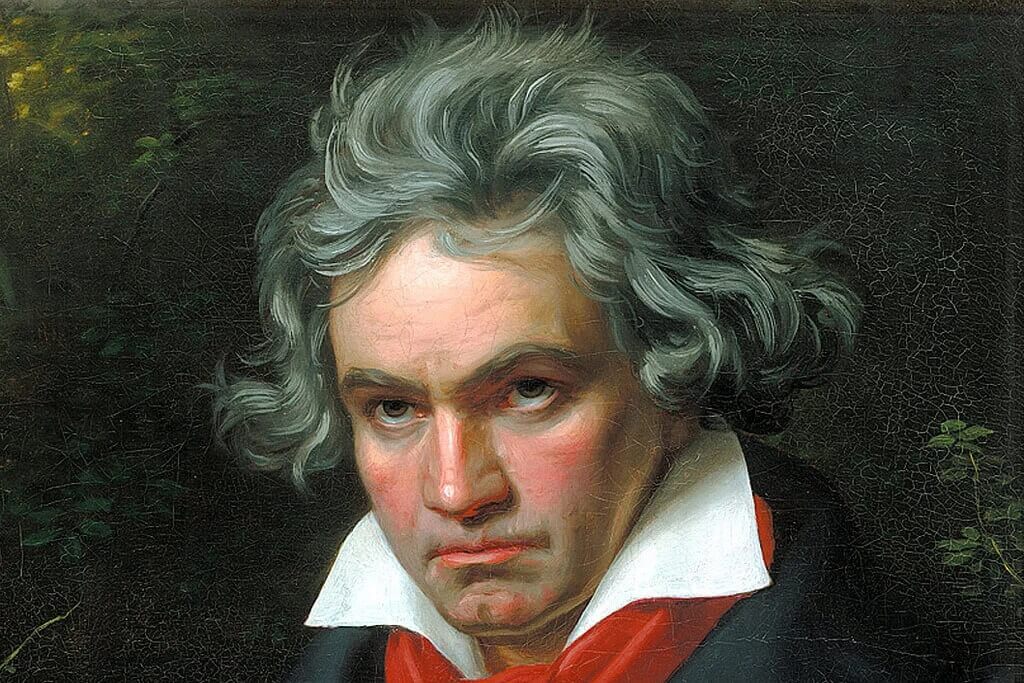Discover the biography of Ludwig van Beethoven, one of those souls in the clutches of the conflict between creation and suffering, which although considered the greatest musical genius of all time, did not have a happy life and did not fully value his successes. Even from a young age I was already fighting with the world.
Beethoven composed a gigantic work. More than 32 piano sonatas, 17 quartets, 8 trios, 5 piano concertos and more; however, what has won the admiration of entire generations is his symphonies, in particular the Fifth, that have made him very famous.
“Music must spring from the fire of man’s heart and tears from the woman’s eyes. “Ludwig van Beethoven.
Despite the glory he had in life, Beethoven did not have a very comfortable economic situation, nor did he have a full family or a love life, perhaps that is why his work has both this particular depth and this dark and splendid tone. , like him, is surprisingly complex.
Ludwig van Beethoven comes from a family of musicians. His father and grandfather were professional musicians, his paternal grandparents, Ludwig and Maria Josepha Poll, strongly influenced him, in fact, his grandfather was practically the only person with which he established a healthy emotional bond during his childhood, while his grandmother was an alcohol lover.
Beethoven had four brothers. He was the second son to be conceived; his mother, Mary Magdalene Kewerich, had fragile health and a weak personality; his father, Johann, was an alcoholic who was dedicated to alcohol and recently for the family; Grandpa Ludwig identified with the child. talented and gave him his first piano lessons.
Ludwig van Beethoven did not know what the warmth of a house was, when the genius was 5 years old he began to show off with his musical gifts, his father said he wanted to take this opportunity to alleviate his poverty. , but he didn’t make it. They say that at just 12 years old, Beethoven was already a taciturn boy who claimed to hate the world.
However, Beethoven managed to make great friends, in fact, he has always had a special appreciation for friendship, the first of these great ties was born with a young man named Wegeler, who led him to live with the Breuning family. Piano lessons, he learned how stable a family was and lived his first love. He fell in love with Leonore, his music studio partner. However, she rejected it. This increased his boredom with the world.
Beethoven traveled to Vienna in 1787 and completed his training. It was also there that he began to become a musical celebrity. There he lived permanently since 1792, the date of his most successful time as a composer. However, on that, he also had great romantic disappointments. In 1794 he wanted to marry singer Magdalena Will, but she called him “ugly and crazy?”and rejected it. He later met Julieta Guicciadi, who played with him for a while. It is for her that she composed the famous Sonata ao Luar.
Between 1806 and 1810 he had a loving and passionate relationship with Teresa of Brunswick, on the same stage composed the symphonies Fifth and Sixth, as well as the Appassionata, the relationship ended and several disappointments followed, in addition to two of his brothers moved in with him. In fact, at your expense. He kept his finances in red numbers.
At the age of 30 Beethoven began to notice the first symptoms of his deafness, which for some reason made him more embarrassing than disturbing, did not depend on listening to compose, because his talent was beyond normal, never forgave Goethe for making a public comment about his deafness.
Deafness was not a problem for Ludwig van Beethoven in relation to his work, he continued to compose as if all were well. Of course, over time, his social relationships have deteriorated more and more, his brothers spent almost all the money he received, his companion sisters hated him. He was in charge of teaching private lessons to one of his nephews and was a huge burden to him because the boy was very rebellious.
His health began to deteriorate. Then, suffocated by his economic situation, he decided to seek the help of friends and acquaintances, the London Philharmonic Society advanced him 100 euros for a concert to be offered on his behalf, wept at the time of receiving this help and promised to make the Tenth Symphony as a thank you for this gesture. However, death surprised him in 1824, before he could keep his promise.

